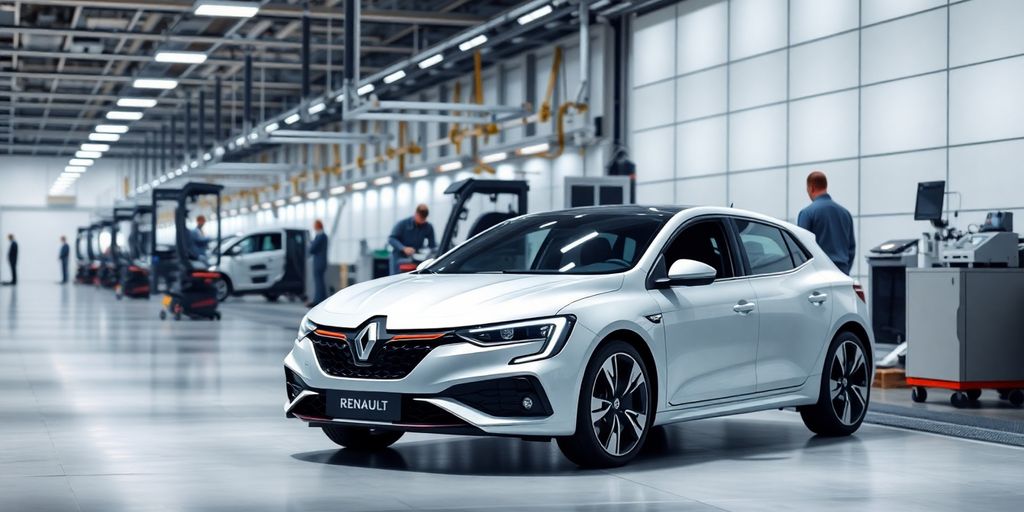French automaker Renault has announced its willingness to share technology with rival car manufacturers to help reduce production costs and increase vehicle output. CEO Luca De Meo made this statement during a parliamentary hearing in Rome, emphasizing the need for collaboration in the automotive industry, especially in the face of rising regulatory costs.
Key Takeaways
- Renault is open to sharing technology with competitors to lower manufacturing costs.
- CEO Luca De Meo remains optimistic despite a failed collaboration with Volkswagen.
- The focus is on small cars and commercial vehicles, which require significant investment.
- Regulatory changes are expected to increase production costs for medium and small cars significantly by 2030.
Renault’s Commitment to Collaboration
In a recent statement, Luca De Meo highlighted Renault’s commitment to collaboration within the automotive sector. He noted that the company is not deterred by its unsuccessful negotiations with Volkswagen regarding a joint electric vehicle project. Instead, Renault is keen to explore partnerships that can lead to shared technological advancements.
"We remain fully open," De Meo stated, indicating that Renault is ready to engage with other manufacturers to develop shared platforms and technologies. This approach aims to enhance the production of vehicles that are not only affordable but also environmentally friendly.
The Importance of Shared Technology
De Meo pointed out that sharing technology, particularly in the development of vehicle platforms, can significantly benefit the industry. Platforms are the foundational architectures that support various models, allowing manufacturers to streamline production processes and reduce costs.
- Benefits of Shared Technology:
- Cost Reduction: By sharing platforms, manufacturers can lower the costs associated with developing new models.
- Increased Output: Collaborative efforts can lead to a higher volume of vehicles produced, meeting market demand more effectively.
- Innovation: Pooling resources can foster innovation, leading to better products for consumers.
Challenges Ahead
Despite the potential benefits, the automotive industry faces several challenges. De Meo noted that the increasing regulatory requirements are expected to raise production costs significantly.
- Projected Cost Increases by 2030:
- Medium-Sized Cars: Expected to see a 20% increase in production costs.
- Small Cars: Anticipated to face a 40% increase in costs.
These rising costs pose a significant challenge for manufacturers, particularly in the small car segment, where profit margins are already tight. De Meo’s comments reflect a broader concern within the industry about the sustainability of producing affordable vehicles in a rapidly changing regulatory environment.
Conclusion
Renault’s willingness to share technology with rivals marks a significant shift in the automotive landscape. As manufacturers grapple with rising costs and regulatory pressures, collaboration may become essential for survival. By fostering partnerships and sharing resources, companies like Renault can not only reduce costs but also drive innovation in the industry, ultimately benefiting consumers with more affordable and advanced vehicles.
Sources
- Renault still open to supply technology to rivals to make cars cheaper, CEO says By Reuters, Investing.com.
- Renault still open to supply technology to rivals to make cars cheaper, CEO says, Reuters.

Founder Dinis Guarda
IntelligentHQ Your New Business Network.
IntelligentHQ is a Business network and an expert source for finance, capital markets and intelligence for thousands of global business professionals, startups, and companies.
We exist at the point of intersection between technology, social media, finance and innovation.
IntelligentHQ leverages innovation and scale of social digital technology, analytics, news, and distribution to create an unparalleled, full digital medium and social business networks spectrum.
IntelligentHQ is working hard, to become a trusted, and indispensable source of business news and analytics, within financial services and its associated supply chains and ecosystems











